Resources

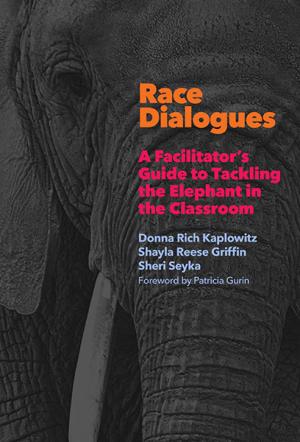
All too often, race discourse in the United States devolves into shouting matches, silence, or violence, all of which are mirrored in today’s classrooms. This book will help individuals develop the skills needed to facilitate difficult dialogues across race in high school and college classrooms, in teacher professional learning communities, and beyond. The authors codify best practices in race dialogue facilitation by drawing on decades of research and examples from their own practices. They share their mistakes and hard-earned lessons to help readers avoid common pitfalls. Through their concrete lesson plans and hands-on material, both experienced and novice facilitators can immediately use this inclusive and wide-ranging curriculum in a variety of classrooms, work spaces, and organizations with diverse participants. (From the Publisher)
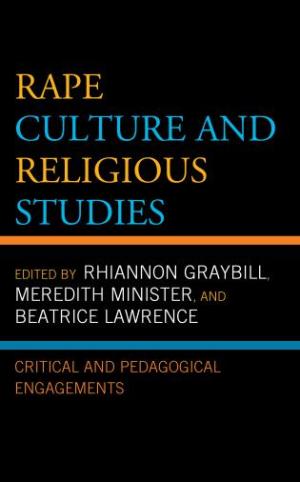
Rape Culture and Religious Studies: Critical and Pedagogical Engagements stages a critical engagement between religious texts and the problem of sexual violence. Rape and other forms of sexual violence are widespread on college and university campuses; they also occur in sacred texts and religious traditions. The volume addresses these difficult intersections as they play out in texts, traditions, and university contexts. The volume gathers contributions from religious studies scholars to engage these questions from a variety of institutional contexts and to offer a constructive assessment of religious texts and traditions. (From the Publisher)
One-page Teaching Tactic in which students share their social location, to build community and set the stage for tough conversations about race, gender and privilege.
This paper claims that programs in prisons are challenging the very who, where, how, and what of theological education. The author draws on research from the fields of pedagogy and prison studies, nearly a decade of experience teaching master's level seminary‚Äêstyle classes in prison, and the findings of a two‚Äêyear cohort of prison educators convened by the Association of Theological Schools for their Educational Models and Practices Project. Addressing displacement as a learning strategy, classroom diversity, the use of student experience, narrative grading strategies, and classroom ritual, the author shows how the teaching strategies emerging from prison classrooms provide vibrant models for the theological academy at large.
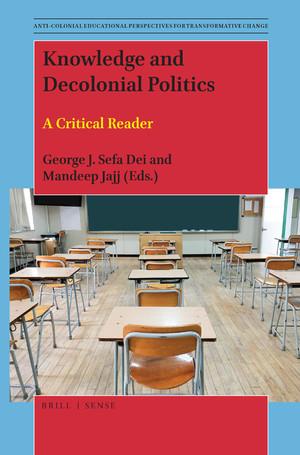
Click Here for Book Review Knowledge and Decolonial Politics: A Critical Reader offers the perspectives of educators and learners within current developmental settings, highlighting the systemic barriers faced whilst trying to implement decolonial pedagogies and practices. In the hope to challenge the dominance of Western Eurocentric thought in education and international development, the authors of this book offer counter narratives to promote the use of embodied cultural knowledges and histories, along with Indigenous perspectives, in order to subvert Western knowledge systems which are inherently colonial in nature. Changing education as we know it today requires creating spaces in which multiple knowledges can co-exist and benefit from one another. These spaces will ensure the continuity of decolonial practices and shape the intellectual politics of future generations. (From the Publisher)
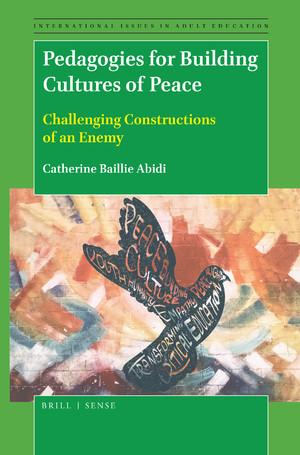
Click Here for Book Review A qualitatively designed, intentionally dialogic strategy for understanding the depth of normalized violence and constructing pedagogies for promoting peace. - Ryan Korstange, Middle Tennessee State University Pedagogies for Building Cultures of Peace explores how normalizations of violence are constructed from the perspective of young adults and how pedagogies can be created toward building cultures of peace. Findings show the diverse ways in which enmity (or the dehumanized other) is constructed, including through socialization processes, associating difference as deficient, systems of exclusion, disengaged citizenship, and cultures of competition and rivalry. Results also show how critical adult education can reveal hidden forms of power embedded within normalizations of violence, creating opportunities for peacebuilding education. By collaboratively engaging in peace research with youth, and by explicitly exploring power as a central component of violence, violence transformation and peacebuilding education led by youth become imaginable. (From the Publisher)
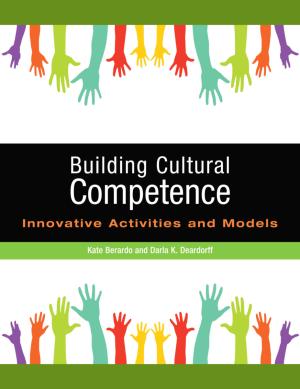
For HR directors, corporate trainers, college administrators, diversity trainers and study abroad educators, this book provides a cutting-edge framework and an innovative collection of ready-to-use tools and activities to help build cultural competence―from the basics of understanding core concepts of culture to the complex work of negotiating identity and resolving cultural differences. Building Cultural Competence presents the latest work in the intercultural field and provides step-by-step instructions for how to effectively work with the new models, frameworks, and exercises for building learners’ cultural competence. Featuring fresh activities and tools from experienced coaches, trainers, and facilitators from around the globe, this collection of over 50 easy-to-use activities and models has been used successfully worldwide in settings that range from Fortune 500 corporations to the World Bank, non-profits, and universities. Learn updates on classic models like the DIE (Description, Interpretation, Evaluation) framework and the U-Curve model of adjustment. Engage in new exercises to help build intercultural competence, using the practical step-by-step guidance on how to effectively facilitate these activities. Stay relevant and have positive impact with clients, organizations, and students with these well-organized, easy-to-implement, and high impact collection of frameworks, models, and activities. The new, research-based models work for developing cultural competence in any environment, and for designing effective cultural competence courses. Education abroad administrators will be able to use these activities in their pre- departure orientations for students going abroad. Corporate human resource professionals will find these activities invaluable in cultural competence building programs. (From the Publisher)
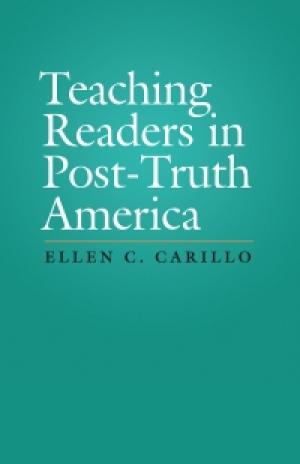
Click Here for Book Review Teaching Readers in Post-Truth America shows how postsecondary teachers can engage with the phenomenon of “post-truth.” Drawing on research from the fields of educational and cognitive psychology, human development, philosophy, and education, Ellen C. Carillo demonstrates that teaching critical reading is a strategic and targeted response to the current climate. Readers in this post-truth culture are under unprecedented pressure to interpret an overwhelming quantity of texts in many forms, including speeches, news articles, position papers, and social media posts. In response, Carillo describes pedagogical interventions designed to help students become more metacognitive about their own reading and, in turn, better equipped to respond to texts in a post-truth culture. Teaching Readers in Post-Truth America is an invaluable source of support for writing instructors striving to prepare their students to resist post-truth rhetoric and participate in an information-rich, divisive democratic society. (From the Publisher)
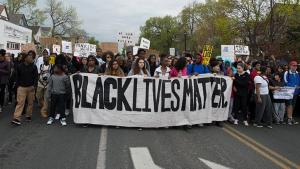
journal Issue